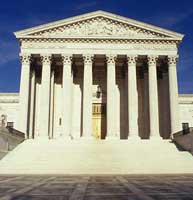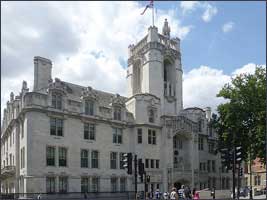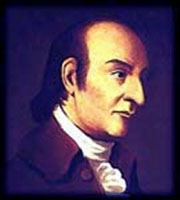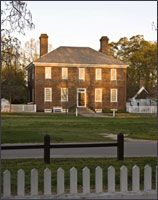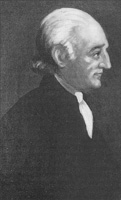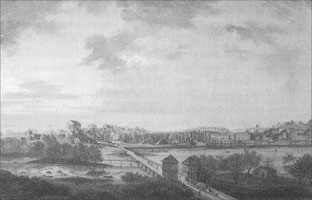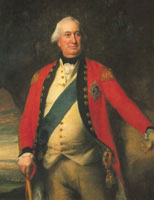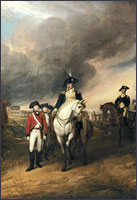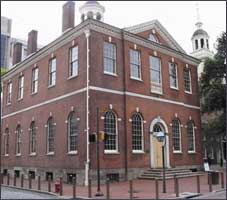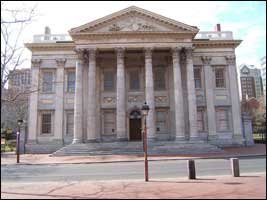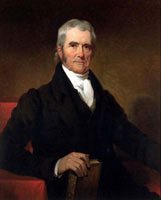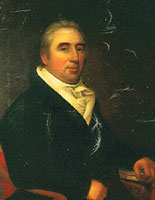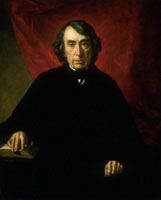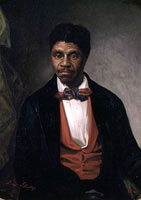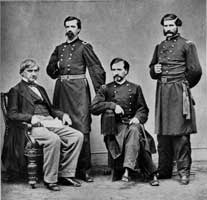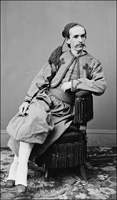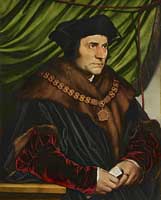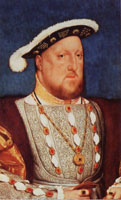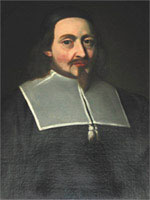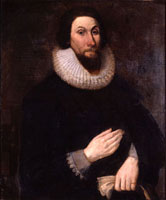| "WOE UNTO YOU LAWYERS, FOR YOU HAVE TAKEN AWAY THE KEY OF KNOWLEDGE. YOU
YOURSELVES
HAVE NOT ENTERED IN; AND THOSE THAT WERE ENTERING IN, YOU HAVE HINDERED" (St. Luke 11:52, Douay-Rheims Version). |
Their are only 2 crimes enumerated in the U.S. Constitution: TREASON and BRIBERY. The big fat salaries that Supreme Court justice receive for LIFE are BRIBES for putting the Pope's law above the U.S. Constitution.
The key of knowledge which the lawyers have taken away is the Holy Bible!!
The legal profession was conceived by the Papacy and born in the 12th century:
Around the year 1150, a small number of jurists were teaching Roman or canon law and practicing in ecclesiastical courts in a handful of cities, but there is no evidence that a legal profession in the rigorous sense of that term existed at that point anywhere in western Europe. Roughly a century later, by around 1250, professional lawyers had set up shop in every European city of any consequence and in some smaller towns as well. (Brundage, The Medieval Origins of the Legal Profession, p.1).
The rise of the Inquisition was the main factor that spurred the demand for canon lawyers. Universities began about that same time–not to advance human knowledge–but to make canon law so complicated that only highly trained lawyers could understand it.
Lawyers represent Papal power in the U.S. and Britain. Alarmingly, there are over 1 MILLION lawyers in this country with over 200 law schools. Britain is a close second with about 120,000 lawyers and almost 100 law schools.
The U.S. Supreme Court was established by the Judiciary Act of 1789. At that time, it comprised 6 justices who were appointed by President Washington for life. As a judicial review court, it has unlimited power to strike down any law passed by the Congress . . . or any of the 50 states.
The new U.K. Supreme Court is the TWIN of this court. It has the power of judicial review over all laws passed in the U.K. It comprises 12 justices who have no term limits but must retire at 70 or 75.
The U.K. Supreme Court was established by Part 3 of the Constitutional Reform Act of 2005 and started work on October 1, 2009. It assumed the judicial functions of the House of Lords, which were exercised by the Lords of Appeal in Ordinary (commonly called "Law Lords"), the 12 professional judges appointed as members of the House of Lords to carry out its judicial business.
|
This copying of the U.S. Supreme Court is supposed to make it easier for the U.S. to make the transition back to the monarchial system. Here is a quote from the Last Will and Testament of Cecil Rhodes:
What an awful thought it is that if we had not lost America, or if even now we could arrange with the present members of the United States Assembly and our House of Commons, the peace of the world is secured for all eternity! We could hold your federal parliament five years at Washington and five at London. The only thing feasible to carry this idea out is a secret one (society) gradually absorbing the wealth of the world to be devoted to such an object. There is Hirsch with twenty millions, very soon to cross the unknown border, and struggling in the dark to know what to do with his money; and so one might go on ad infinitum. (Stead, Last Will and Testament of Cecil Rhodes, p.74).
British-U.S. world hegemony would mean the supremacy of the Pope's diabolical canon law throughout the world.
First colonial law professor died of RAT poisoning!!
George Wythe became the first professor of law at the College of William and Mary in Williamsburg, Virginia. He was one of the fathers of the Jesuit sponsored Revolution and the guiding spirit behind Thomas Jefferson in writing the Constitution. He was a close friend of George Washington, John Adams, John Marshall, and he was the architect of the U.S. judicial system.
Virginia was a magnet for Jesuits, and a Jesuit named Edward Maria Wingfield was on the same ship as Virginia colonizer Captain John Smith.
|
The Pilgrims and the founders of the Massachusetts Bay Colony crossed a vast ocean and faced a howling wilderness to get away from corrupt Papal England. Wythe was determined that it should follow them!!
In 1791, he moved to Richmond, the new capitol of Virginia.
At that time, the city of Richmond was a veritable Sodom and Gomorrah, with brothels and gambling saloons on every corner. Judge Wythe had a grandnephew named George Wythe Sweeney, who lived with him, and a black housekeeper named Lydia Broadnax. The 17 year old George ran up huge gambling debts–he desperately needed money–and he knew that he was one of the heirs of the 80-year-old Wythe.
|
Richmond was also plagued with rats, and ratsbane or arsenic trioxide was used for pest control. Every household had a supply of this common rat poison.
One morning, as Lydia prepared breakfast for George, Sweeney added arsenic to his breakfast cup of coffee. Here is what happened next:
Upstairs in the main house, Chancellor Wythe continued to read the newspaper while he finished eating breakfast and drinking his coffee. As the coffee raced down his throat into his stomach, he suddenly felt stabbing pains throughout his abdomen and chest. A seizure shook him, and he doubled over. He grabbed his sides with his thin, bony hands. Intense pain ravaged his body, a pain more terrible than any he had ever experienced before. He managed to rise from the chair ever so slowly before he vomited all over the room's wooden floor. His mouth felt extremely dry, despite the eruptions, and his now-empty stomach hurt. (Chadwick, I Am Murdered, p.15).
When the doctor arrived, Wythe told him that he had been poisoned:
Later, when his physician arrived, along with a friend who was a lawyer, Wythe struggled to prop himself up on his elbows, Weak, bedridden, and barely able to move, he whispered to them, "I am murdered." (Chadwick, I Am Murdered, p.16).
3 of the most eminent physicians in the new country: Dr. James McClurg, Dr. James McCaw, and Dr. William Foushee, conducted the autopsy, but they could not admit that Chancellor Wythe had died of common rat poison. The defense attorneys, Edmund Randolph and William Witt, argued that the rat poison found in Sweeney's room was no proof that he was the poisoner:
And what about ratsbane? The white powder arsenic compound found in Sweeney's room, and in the paper tossed over the jail yard wall was ratsbane, and everybody knew it. Wythe's friends had been certain that the doctors would attribute his death to ratsbane. Surely, the doctors would have directly connected it to the old man's demise because, probably without much thought, Sweeney had chosen the single most common arsenic poison in the world: the popular ratsbane. Wythe's friends knew that to obtain a conviction for Sweeney, the prosecutors needed the doctors to state conclusively that ratsbane had killed the judge. Yet even if McClurg had sworn that ratsbane was the probable cause of death, the defense attorneys could charge that the common rat poison was found throughout Richmond and the United States and had often been employed to kill rats and other vermin for years. Sweeney had ratsbane in his room? So what? Most people did. (Chadwick, I Am Murdered, p.197).
Sweeney was found not guilty . . . and escaped justice in this life....This was despite the fact that Lydia Broadnax saw him put the poison in the cup. As a black, she was not allowed to testify, so everything depended on the testimony of the autopsy doctors.
To certify that the first law professor in the new United States, the mentor of President Jefferson, a signer of the Declaration of Independence, died of rat poisoning was just too much for the learned doctors to affirm.
The U.S. Supreme Court was a gift from Lord Cornwallis!!
In October 1781, Lord Corwallis "surrendered" to George Washington at the Siege of Yorktown. This was the same Lord Cornwallis who brought about the abolition of the Irish Parliament in 1800.The British Army was the best trained in the world and had never suffered a defeat up to that time.
|
General Washington was an officer in the colonial British Army during the French and Indian War (1754-1763), and it is amazing that he fell for such an old, old trick....He should have known that the bulldog never loosens his grip.
Cornwallis knew that the Bank and the Supreme Court would be much more effective than his redcoats firing muskets. His Supreme Court was successful beyond his wildest dreams.
|
The diabolical Bank was closed by President Jackson in 1836 but rechartered in 1913. The Supreme Court has had an uninterrupted reign since its founding in 1781.
In the beginning, the Supreme Court judges were very humble; meeting in very cramped quarters in Philadelphia's City Hall. Provision for a Supreme Court was found in the 1787 Constitution . . . but with very. very limited powers:
The judicial Power of the United States, shall be vested in one supreme Court, and in such inferior Courts as the Congress may from time to time ordain and establish. The Judges, both of the supreme and inferior Courts, shall hold their Offices during good Behavior, and shall, at stated Times, receive for their Services a Compensation which shall not be diminished during their Continuance in Office. (U.S. Constitution, Article III, Section 1).
Good behavour in that case meant for life . . . or as long as they upheld the Pope's canon law.
The Judiciary Act of 1789 set the number of justices at 6: one chief justice and 5 associate justices. The Supreme Court was given vast jurisdiction over the states. Here is the vitally important section 13:
SEC. 13. And be it further enacted, That the Supreme Court shall have exclusive jurisdiction of all controversies of a civil nature, where a state is a party, except between a state and its citizens; and except also between a state and citizens of other states, or aliens, in which latter case it shall have original but not exclusive jurisdiction. And shall have exclusively all such jurisdiction of suits or proceedings against ambassadors, or other public ministers, or their domestics, or domestic servants, as a court of law can have or exercise consistently with the law of nations; and original, but not exclusive jurisdiction of all suits brought by ambassadors, or other public ministers, or in which a consul, or vice consul, shall be a party. And the trial of issues in fact in the Supreme Court, in all actions at law against citizens of the United States, shall be by jury. The Supreme Court shall also have appellate jurisdiction from the circuit courts and courts of the several states, in the cases herein after specially provided for; and shall have power to issue writs of prohibition to the district courts, when proceeding as courts of admiralty and maritime jurisdiction, and writs of mandamus, in cases warranted by the principles and usages of law, to any courts appointed, or persons holding office, under the authority of the United States.
The Act also created 13 judicial districts within the 11 states that had then ratified the Constitution (North Carolina and Rhode Island were added as judicial districts in 1790, and other states as they were admitted to the Union). Each state comprised one district, except for Virginia and Massachusetts, each of which comprised two. Massachusetts was divided into the District of Maine (which was then part of Massachusetts) and the District of Massachusetts (which covered modern-day Massachusetts). Virginia was divided into the District of Kentucky (which was then part of Virginia) and the District of Virginia (which covered modern-day West Virginia and Virginia).
These circuit courts were modeled after the circuit courts established by Papal King James I in 1605:
The primary purpose of the assizes was to dispense the king's justice. England and Wales were divided into seven circuits, and commissions were issued by the king to groups of judges of the national courts at Westminster to ride the various circuits and try serious crimes. By the late sixteenth century virtually all felony offenses–burglary, homicide, witchcraft, rape, and arson–were being held over for the assizes rather than being dealt with by county justices. (Bremer, John Winthrop, p.105.The writ of mandamus was power given by Congress to the Court to force a federal official to carry out a certain order. The power given the Supreme Court was so vast that Chief Justice John Marshall ruled that Congress had exceeded its authority. This led to the famous Supreme Court decision that the Court .... and not Congress . . . had the final say in all jurisdiction.
The Supreme Court established judicial review in 1803
Judicial review means that the Supreme Court has authority to sit in judgment of all the laws of the nation.
In a famous case called Marbury v. Madison, the Supreme Court decided that Congress had exceeded its authority in granting to the Supreme Court the power to issue a writ of mandamus.
William Marbury was one of the "midnight judges" appointed by United States President John Adams the day before he left office. In an effort to prevent the incoming party from dismantling his Federalist Party-dominated government, Adams issued 42 judicial appointments, including Marbury's as Justice of the Peace in Washington City,on March 3, 1801, the day before he turned his government over to incoming President Thomas Jefferson. Jefferson refused to honor Adams's appointments on the grounds that Adams's paperwork had not been delivered to the proper offices before the change of administration had taken place. Marbury then sued Jefferson's secretary of state, James Madison, in the Supreme Court of the United States, asking it issue a writ of mandamus to force the Jefferson administration to honor Adams's appointments. Marbury's suit resulted in a landmark 1803 Supreme Court case, Marbury v. Madison, that first established the right of judicial review. Supreme Court Chief Justice John Marshall's two-pronged decision averred that while the Court did not have the authority to issue the writ Marbury had requested, it did retain the right to review the constitutionality of actions of the federal executive and legislative branches of government, including those of the Adams and Jefferson administrations.
|
From that time onward, all the Presidents knew that the real power in the U.S. lay with the unelected judges of the Supreme Court. In another infamous case called McCullough v. Maryland, Marshall and his judges ruled that the corrupt Bank of the "United States" was Constitutional.
The Supreme Court ruled that blacks cannot be U.S. citizens!!
Another infamous decision by the Supreme Court was called the Dred Scott Decision. These guardians of the Constitution ruled that blacks (slave or free) were not eligible for U.S. citizenship.
|
The verdict of the court caused outrage throughout the country and eventually led to the Civil War and the near extinction of the United States.
The Supreme Court freed President Lincoln's assassin!!
Not content with starting the Civil War and causing the deaths of over 600,000 people, the Supreme Court released John Surratt, one of the coordinators of the assassination of President Lincoln.
After the assassination of President Lincoln, a nine-member military tribunal or kangaroo court convened to try the 8 "conspirators." After a lengthy trial, 4 of them were sentenced to hang: Mary Surratt, Lewis Powell, David Herold, and George Atzerodt. During this time, one of the real leader of the conspiracy–John Surratt– was in hiding in Canada.
|
At the civilian trial of John Surratt in 1867, Surratt's attorneys rigged the jury and they were unable to reach a verdict of guilty. This was despite the fact that an eye-witness, Sergeant Dye, had seen him in front of Ford's Theatre the very night of the assassination:
The presence of John H. Surratt in Washington City on the day of the assassination was proven before the Military Commission by a single witness. This witness, however, was a man who was personally acquainted with him, and who swore positively to having seen him on that day. His testimony was given about a month after the event, and the circumstance was fresh in his memory. He stated the time of the day when, and the place where, he saw him; described his dress, the kind of hat he was wearing, etc., etc. He was clear in his statements, could have had no motives for swearing falsely, and it is scarcely possible that he could have been mistaken. From the description given by Sergeant Dye of the man who acted as monitor, calling the time three times in succession at short intervals, the last time calling "Ten minutes past ten," in front of the theatre, it will be remembered that the writer came to the conclusion that this was John H. Surratt. (General T.M. Harris, Assassination of Lincoln).
With the right lawyers and an unlimited supply of money, anybody–even the murderer of the President of the United States–can escape justice in this life.
The Supreme Court appointed the President in 2000
An an unbelievable usurpation of power, the Supreme Court actually appointed the President in the year 2000.
 Al Gore. |
|
 President Bush. |
When the 20th Amendment was passed in 1933, the Supreme Court did not have the foresight to see that national election results could be challenged, and that an adequate amount of time was necessary between Election Day and Inauguration Day.
All the violations of the Constitution since the Civil War, such as the rechartering of the corrupt U.S. Bank, the 25th (Rockefeller) Amendment, the approval of abortion, the ban on prayer and Bible reading in the schools, were flagrant violations of the Constitution . . . but the silence of the Supreme Court on these vital issues was deafening.
President Obama wants to pack the Supreme Court with more canon lawyers!!
If President Obama wins another term, he will have an opportunity to pack the Court with more canon lawyers. This is beyond belief because the Supreme Court ruled that blacks cannot be U.S. citizens.
Latin Church lawyers are all canon lawyers and they must be thoroughly familiar with the Syllabus of Errors of Pope Pius IX.
 Canon lawyer John Roberts. |
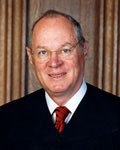 Canon lawyer Anthony Kennedy. |
 Canon lawyer Clarence Thomas. |
 Canon lawyer Sonia Sotomayor. |
 Canon lawyer Samuel Alito. |
 Canon lawyer Antonin Scalia. |
In 1869, the number of Supreme Court justices was finally fixed at 9, so all that is necessary for a voting majority is 5 members. Bigoted persecutor Sir Thomas More is the patron "saint" of lawyers and lawyers are encouraged to follow his example by exalting the Pope's canon law above the civil law. These 6 justices open the 2 annual sessions of the Supreme Court by calling on "saint" Thomas More to guide them!!
Sir Thomas More is the patron "saint" of lawyers!!
Sir Thomas More was Lord Chancellor of England from 1525 to 1532. He was a bigoted persecutor and had Saint William Tyndale burned alive at the stake for translating the Bible from Hebrew and Greek into English.
More was the ghostwriter for King Henry's Latin tome Defence of the Seven Sacraments, which More wrote in refutation of Saint Martin Luther's Babylonian Captivity of the Church.
As the supposed author of the book, Pope Leo X awarded Henry the title Fidei Defensor or Defendor of the Latin Papacy. King Henry came to regret that pompous title when he had to appeal to Pope Leo for an annulment of his marriage to Catherine of Aragon.
|
Henry was very anxious to obtain a male heir to the throne because he knew that it would be a disaster for England to be ruled by a woman.
While Sir Thomas More was working with Henry in writing the Defence of the Seven Sacraments, Henry noticed this verse in Leviticus:
He that marrieth his brother's wife, doth an unlawful thing: he hath uncovered his brother's nakedness. They shall be without children. (Leviticus 20:21, Douay-Rheims Version).
That one verse was the catalyst for the blessed English Reformation. King Henry threw off the yoke of Rome and he abolished the teaching of canon law at Oxford and Cambridge.
The GREAT King Henry closed the corrupt monasteries in England and Ireland; he sent More to the Tower of London for a haircut, and he married Saint Anne Boleyn.
The Word of JEHOVAH is so powerful that one little verse can turn the world right side up.
The first English colonists hated lawyers . . . and slavery!!
The Pilgrims had only one lawbook: the Holy Bible. They knew that they were Israel, sent out by JEHOVAH to build a great Christian nation in the wilderness.When JEHOVAH led His people out of Egyptian bondage, the first thing he gave the Old Covenant Israel was a LEGAL SYSTEM:
And what nation is there so great, that hath statutes and judgments so righteous as all this LAW, which I set before you this day? (Deuteronomy 4:8).
JEHOVAH did NOT give his LAW to the Israelites in some obscure or DEAD LANGUAGE like Latin and command Moses to keep it a secret from all but a select few:
And thou shalt write upon the stones all the words of this law very PLAINLY (Deuteronomy 27:8).The first code of law in the colonies was established by the Massachusetts Bay Colony in 1641. The Massachusetts Bay Colony was granted a royal charter by King Charles I in 1629, and the western boundary of the colony was the PACIFIC OCEAN.
After the Seven Years' War (1756–1763), the colony was double-crossed because all the land west of the Mississippi River was given to Spain.
|
John Winthrop is famous for his "city upon a hill" sermon. He was also one of the founders of Harvard College, which later became Harvard University.
Papal King Charles I kept a watchful eye on the colony through his numerous spies, so the Christians had to tread very carefully when enacting laws contrary to English common law. England at that time was saturated with greedy lawyers, so Governor Winthrop kept them away from the colony by eliminating the monetary reward for their services:
26. Every man that findeth himselfe unfit to plead his owne cause in any Court shall have Libertie to imploy any man against whom the Court doth not except, to helpe him, Provided he give him noe fee or reward for his paines. This shall not exempt the partie him selfe from Answering such Questions in person as the Court shall thinke meete to demand of him.
Slavery was also prohibited by this enlightened Christian legislation:
91. There shall never be any bond slaverie, villinage or Captivitie amongst us unles it be lawfull Captives taken in just warres, and such strangers as willingly selle themselves or are sold to us. And these shall have all the liberties and Christian usages which the law of God established in Israell concerning such persons doeth morally require. This exempts none from servitude who shall be Judged thereto by Authoritie.
Following the decree in Deuteronomy, if a person was taken as a slave, he was to be released after 7 years of servitude:
88. Servants that have served deligentlie and faithfully to the benefitt of their maisters seaven yeares, shall not be sent away emptie. And if any have bene unfaithfull, negligent or unprofitable in their service, notwithstanding the good usage of their maisters, they shall not be dismissed till they have made satisfaction according to the Judgement of Authoritie.
Some colonies were more jealous of their liberties than others, but they all had one thing in common: they hated lawyers:
In all of the Colonies, the question of whether the Common Law was to be accepted as the basis of the Colonial Law was a live issue. Some Colonial Legislatures and courts very early accepted the Common Law as binding. In others, the right of the Colony to institute or adopt the Common Law, or such parts of it as they saw fit, was earnestly maintained; and it cannot be said that it was generally accepted as binding until many years after the close of the Seventeenth Century. Nothing, however, in the early legal history of the Colonies is more striking than the uniformly low position held in the community by the members of the legal profession, and the slight part which they played in the development of the country until nearly the middle of the Eighteenth Century. In every one of the Colonies, practically throughout the Seventeenth Century, a lawyer or attorney was a character of disrepute and of suspicion, of whose standing or power in the community the ruling class, whether it was the clergy as in New England, or the merchants as in New York, Maryland and Virginia, or the Quakers as in Pennsylvania, was extremely jealous. In many of the Colonies, persons acting as attorneys were forbidden to receive any fee; in some, all paid attorneys were barred from the courts; in all, they were subjected to the most rigid restrictions as to fees and procedure. (Warren, A History of the American Bar, p. 4).
Thanks to the Jesuits, the resistance to the legal profession was finally overcome with the creation of the Supreme Court. Congress authorized all people to either represent themselves or to be represented by another person. The Judiciary Act of 1789 did not prohibit paying a representative to appear in court.
It is true that Presidents Jackson and Lincoln were lawyers but they were liberty-loving patriots first and lawyers second. Neither of these 2 great men would have been allowed to serve on the Supreme Court.
The final court of the universe is the judgment seat of Christ!!
The final court of the universe is the judgment seat of Christ which will convene on the last day. Saint Paul said that everybody must appear there:
For we must all appear before the judgment seat of Christ; that every one may receive the things done in his body, according to that he hath done, whether it be good or bad (II Corinthians 5:10).
The Bible says that many of the mighty men of the earth, or those who were highly esteemed by this world, shall cry there very bitterly:
The great day of JEHOVAH is near, it is near, and hastens quickly, even the voice of the day of JEHOVAH: the mighty man shall cry there bitterly (Zephaniah 1:14).
Vital links
References
Brundage, James A. The Medieval Origins of the Legal Profession: Canonists, Civilians, and Courts. University of Chicago Press, Chicago & London, 2008.
Bremer, Francis J. John Winthrop. America's Forgotten Founding Father. Oxford University Press, Oxford & New York, 2003.
Bowen, Catherine Drinker, The Lion and the Throne. The Life and Times of Sir Edward Coke. Little, Brown & Co., Boston, MASS, 1956.
Blackburn, Joyce. George Wythe of Williamsburg. Harper & Row Publishers, New York, 1975.
Chadwick, Bruce. I Am Murdered: George Wythe, Thomas Jefferson, and the Killing That Shocked a New Nation. John Wiley & Sons, Inc., 2009.
Friedman, A History of American Law, Simon & Schuster, New York, 1973.
Feinman, Jay M. Law 101. Everything You Need to Know About the American Legal System. Oxford University Press, New York, 2000.
Haskins, George Lee. Law and Authority in Early Massachusetts. The Macmillan Company, New York, 1960.
Stead, W.T. The Last Will and Testament of Cecil John Rhodes. "Review of Reviews" Office, London, 1902.
Schwartz, Bernard. A History of the Supreme Court. Oxford University Press, New York, 1993.
Osgood, Herbert L, The American Colonies in the 17th Century. Peter Smith, Gloucester, MASS, 1957.
Roth, Andrew. Devil's Advocates: The Unnatural History of Lawyers. Nolo Press, Berkeley, CA, 1989.
Warren, Charles, A History of the American Bar, H. Hertig, New York, 1966.
Copyright © 2018 by Patrick Scrivener
